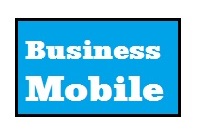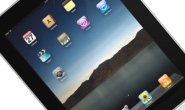According to research from analysts iSuppli Apple are set to dominate the tablet computing field at least until 2010, and won’t really start to see any competition until at least Q2 of 2011, allowing the company to maintain a dominant share in the tablet market at least through 2012.
According to iSuppli’s research the iPad will account for an overwhelming 74.1% of global tablet shipments in 2010, with the remaining 25.9% consisting of a mix of older PC-type tablet products and competitive slates.
Despite the arrival of the first real iPad competitors in late 2010 and early 2011, Apple will still maintain a prevailing 70.4% share of shipments. Even in 2012, the iPad will continue to control nearly two-thirds of shipments, at 61.7%, as the competition strives to develop ecosystems of tablet apps and content that can match up with those of Apple.
iSuppli’s forecast of the competitive landscape for the iPad is based on the short history of the iPhone market.
According to iSuppli the iPad is in a similar situation as the iPhone when it first arrived. Launched in June 2007, the iPhone was followed by a range of competing products during the next five months to two years, such as the Samsung F700, the UTStarcom XV6800, the Google G1 and the Palm Pre. However, it took almost three years for the competition to offer phones that were not just in the ballpark of being comparable to the iPhone, but also were truly differentiated and superior in some respects, iSuppli’s mobile market research indicates. These phones today include the Motorola Droid, coming 29 months after the iPhone introduction; and the HTC Evo 4G, released 36 months later.
There presently are numerous products identified by iSuppli as iPad competitors, such as Android- and Windows 7-based tablets from Hewlett-Packard, Dell and Lenovo. However, iSuppli regard none of these as a serious competitor to the iPad from a solution perspective.
iSuppli believes that the most interesting near-term iPad competition is likely to come from HP, which has the requisite experience in building PC-level devices, as well as access to a proprietary WebOS through the company’s Palm acquisition. Nonetheless, HP’s iPad challenger is unlikely to appear before 2011 and probably will incorporate multiple products—including a tablet with significant creation capabilities targeted at the enterprise market, in addition to one or more consumption-style devices targeted at consumers.
Likewise, rumors have surfaced claiming that Google will release a Chrome OS tablet on this year’s Black Friday, Nov. 26. However, that seems unlikely, given that iSuppli sources indicate the initial Chrome OS does not have touch screen display support. Any touch-enabled Chrome-based device would be more likely to appear in 2011 or beyond. Even then, Google faces some significant challenges in premiering a new operating system and migrating directly from smart phones to tablets. More than likely, Google will take an interim step up to the smart book market before jumping into the tablet fray with the Chrome OS.
We at Business Mobile think that the Samsung Galaxy Tab is probably the only real credible competitor to the iPad at present and Samsung are very bullish about sales. We have seen quotes from Samsung employees predicting sales of up to 10,000,000 units for the Tab in the first year. The main problem is that most of the competitor products are still “vapour ware” and until we see the specs and can buy it in the shops the iPad will remain dominant.


